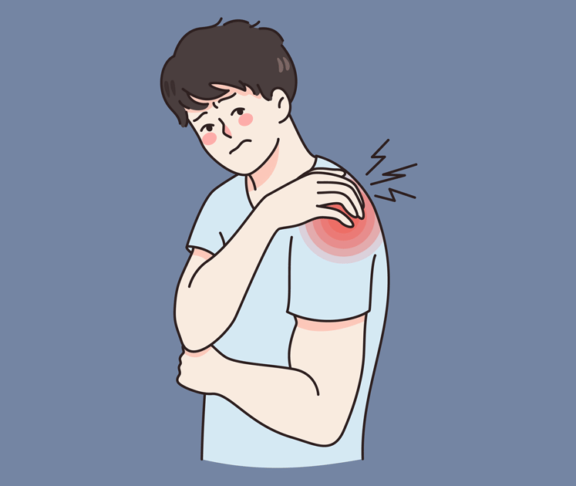Dealing with constant pain can be scary and change your whole life. Chronic pain can have a huge effect on a person's body, emotions, and social life, making them feel useless and alone. Self-advocacy, on the other hand, is a way to take back control and actively manage this situation. We will learn about chronic pain in this piece, including what causes it, how it shows up, and how it affects people.
We will talk about how important it is to be your own advocate when dealing with chronic pain and give you practical ways to give yourself power on this road. We will give you the information and tools you need to speak up for yourself and manage your chronic pain, including how to build a supportive healthcare team, study treatment options, communicate clearly with healthcare providers, and come up with self-care plans.
1. Learn about the causes, symptoms, and effects of chronic pain
1.1 How Complicated Chronic Pain Is
A sneaky little devil called chronic pain can sneak up on you and mess up your life. Pain that lasts for weeks, months, or even years is called chronic pain. Acute pain is a normal response to an injury or sickness and goes away on its own over time. It's like that visitor you don't want who won't go away. It can be hard to tame chronic pain because it is often complicated and has many causes.
1.2 Causes and factors that contribute
There are many things that can cause chronic pain, but some of the most common ones are arthritis, fibromyalgia, back pain, and nerve damage. It's sometimes like a tough police case where the cause just won't give up. Many things, like genetics, accidents, bad posture, or even just plain bad luck, can lead to these conditions. To find out what's going on, it's kind of like a medical Clue game.
1.3 Recognizing and Evaluating Signs of Chronic Pain
Pain that lasts for a long time can show up in different ways for different people. Like a puzzle where the pieces are always becoming different shapes. Aches that won't go away, sharp or shooting pains, stiffness, and tiredness are all common signs. It's important to pay attention to your body and tell doctors about your symptoms so they can help you figure out what's going on.
1.4 Understand how chronic pain affects people physically, emotionally, and socially
Pain that doesn't go away can hurt more than just your body. It can also affect your mind and social life. Like someone who shows up at a party and ruins everything. Having pain that won't go away can make you angry, anxious, depressed, and feel alone. It is important to understand that chronic pain can hurt more than just your body. It can also affect your mental and emotional health. Understanding how chronic pain affects a person's life as a whole is important for successful self-advocacy.
Tapaday 100MG Tablet is a medicine used to treat moderate to severe acute pain in adults. It is used to treat many conditions such as headache, fever, period pain, toothache, and colds. It effectively alleviates pain when other treatments fail to relieve your pain.
2. Why self-advocacy is important for dealing with chronic pain
2.1 Taking Charge of Your Journey with Chronic Pain
If you want to deal with chronic pain, you need to take the lead and steer your own ship. It's like being in charge of a pirate ship, but on your way to get relief, instead of riches. Self-advocacy gives you the power to make choices about your care that will make sure your needs are met and your voice is heard.
2.2 Giving yourself power through self-advocacy
Taking care of your own health is like putting on a superhero cape and becoming an advocate for yourself. It means knowing about your illness, being aware of the different ways to treat it, and standing up for what you want. By being your own advocate, you take an active role in your health care and work with your doctors and experts to find the best ways to deal with your pain.
2.3 Pros of Being Your Own Defender
It's good to be able to speak up for yourself. It's like having a secret superpower that gives you the courage to handle the complicated world of chronic pain. Speaking up and being involved in your healthcare decisions gives you a sense of control, makes it easier to talk to doctors and nurses, and raises the chances of finding treatments that work. You'll also feel strong, which can have a good effect on other parts of your life.
3. Putting together a helpful healthcare team: Picking the Right Experts
3.1 Figuring Out Who the Key Specialists Are for Managing Chronic Pain
Taking care of constant pain usually takes the work of a group. It's like getting a bunch of Avengers with different skills together to fight the pain villain. Pain management doctors, physical therapists, psychologists, and other health care workers who treat chronic pain may be important specialists. Searching for the right specialists for your team is like looking for superheroes who can understand your specific needs and help you.
3.2 Asking for Advice and Recommendations
Sometimes it seems like you're looking for a needle in a haystack to find the right experts. The first thing you can do is ask your primary care doctor, friends, or support groups for suggestions. They may have inside information on pain management experts who are the best at what they do. Getting referrals from people you trust can be a good way to start building a healthcare team that works well together.
3.3 How to Pick and Choose the Best Health Care Providers
It takes some detective work to find the right people for your team because not all of them are the same. It's like picking a trustworthy friend who will always have your back. When looking at possible healthcare providers, think about their experience, knowledge, communication style, and how well they fit with your needs and values. Don't be afraid to ask questions, and believe what your gut tells you. Putting together a good team is like putting together a group of superheroes who want what's best for you.
Tapentadol is a medication used to treat moderate to severe short-term pain (such as pain from an injury or after surgery). It belongs to the opioid analgesics family of medicines. It changes how your body perceives and reacts to pain by acting on the brain. Tapaday 200MG Tablet is a pain reliever for adults that helps after other drugs have failed.
4. Giving yourself information: looking into treatment options
4.1 Learning About Traditional and Nontraditional Treatment Methods
When it comes to managing long-term pain, there are many choices. So it's like being given a choice of treatments and being asked to rate them. Medications, physical therapy, and injections are some examples of traditional treatments. Acupuncture, yoga, and mindfulness methods are some examples of alternative treatments. Knowing the pros and cons of each method is like going to a restaurant knowing what to order so you can make smart decisions.
4.2 Looking into treatments based on evidence
It's important to do study to tell the difference between fake solutions and real ones. Getting to the truth is like being a detective. Looking for treatments that have been shown to help with constant pain is a good idea. Look into scientific studies, get advice from reliable sources, and talk to healthcare workers about what you find. Having knowledge is like having a secret tool that can stop pain.
4.3 Looking at the Pros and Cons of Different Treatment Options
Different types of treatment each have their own risks and rewards. The same way you might think about the pros and cons of flying before you jump. When choosing a treatment, think about the possible side effects, the long-term effects, and your own personal tastes. You can make choices that are in line with your goals and values if you are a smart consumer of pain management strategies.Putting in claims and appealing denials
VISIT: GENERICSHUB | TAPENTADOL






Comments